ℹ️ To see the original source, click on the page image.
- The bias appears as a tendency of people to overestimate their ability to control impulsive behavior. Several addictions can appear due to this.
Also it can be connected to overconfidence in general.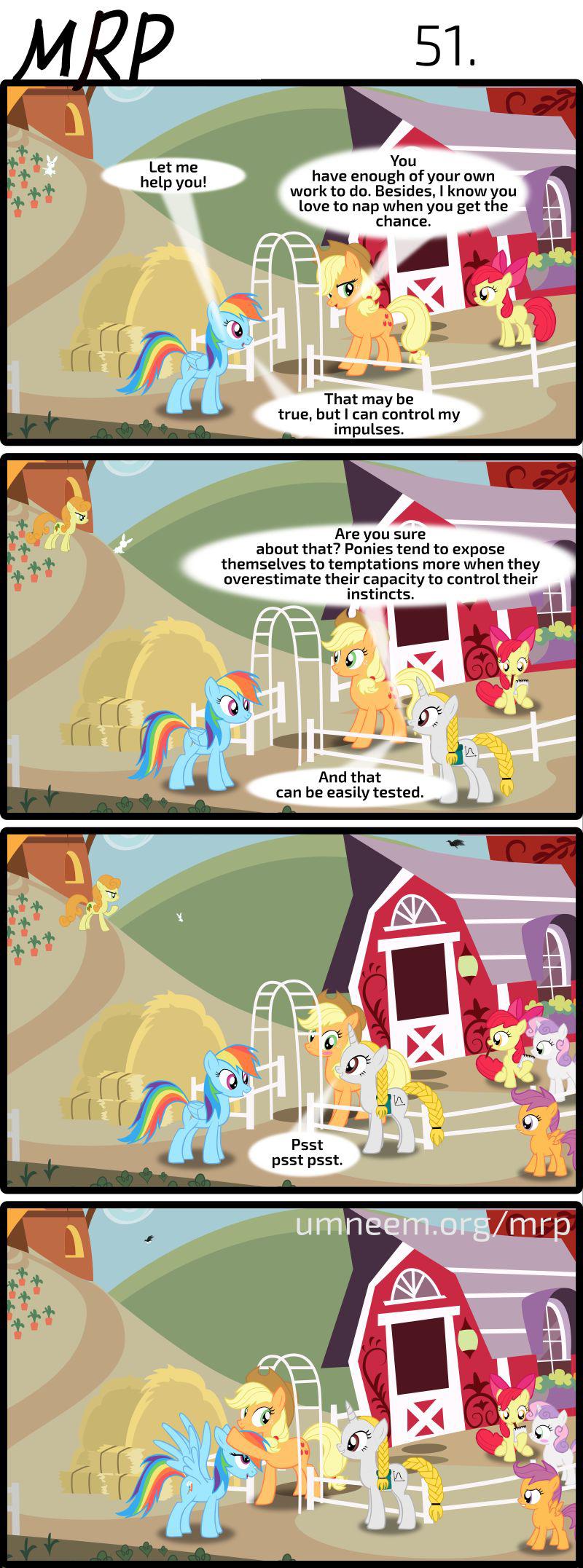
- Actions can be blamed or praised depending on the result and random factors which have influence on the result. The effect can be connected to the illusion of control because the agent's level of influence is overestimated.
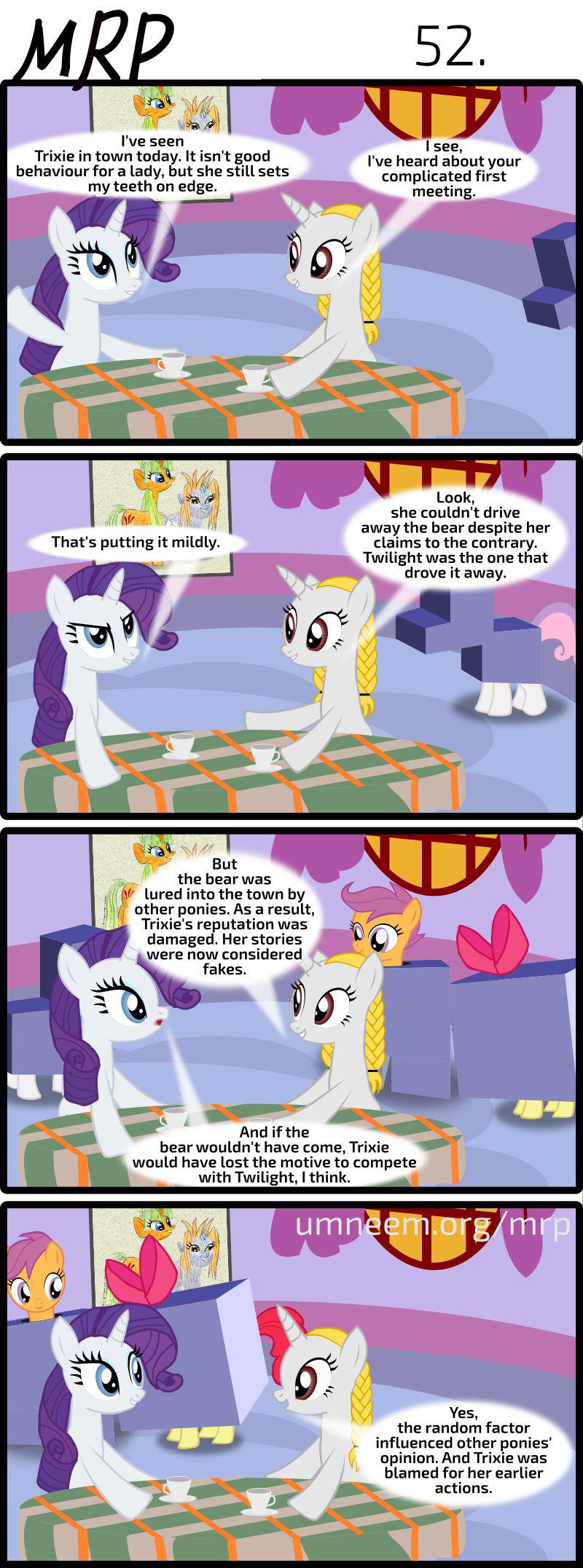
- People usually tend to remember their past choices as better ones than these choices actually were. These past choices can also have influence on current decisions.
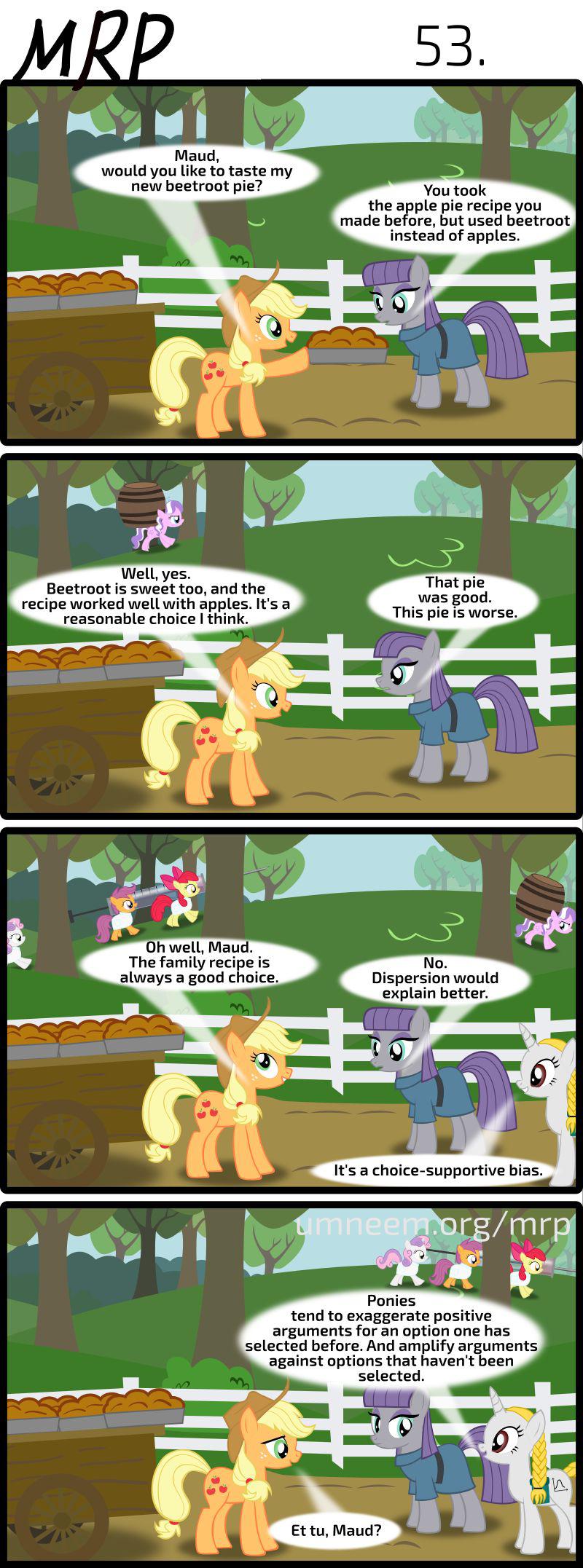
- The inability to spot substantial changes is called change blindness. It may happen across saccades, blinks, movie cuts, and other interruptions.
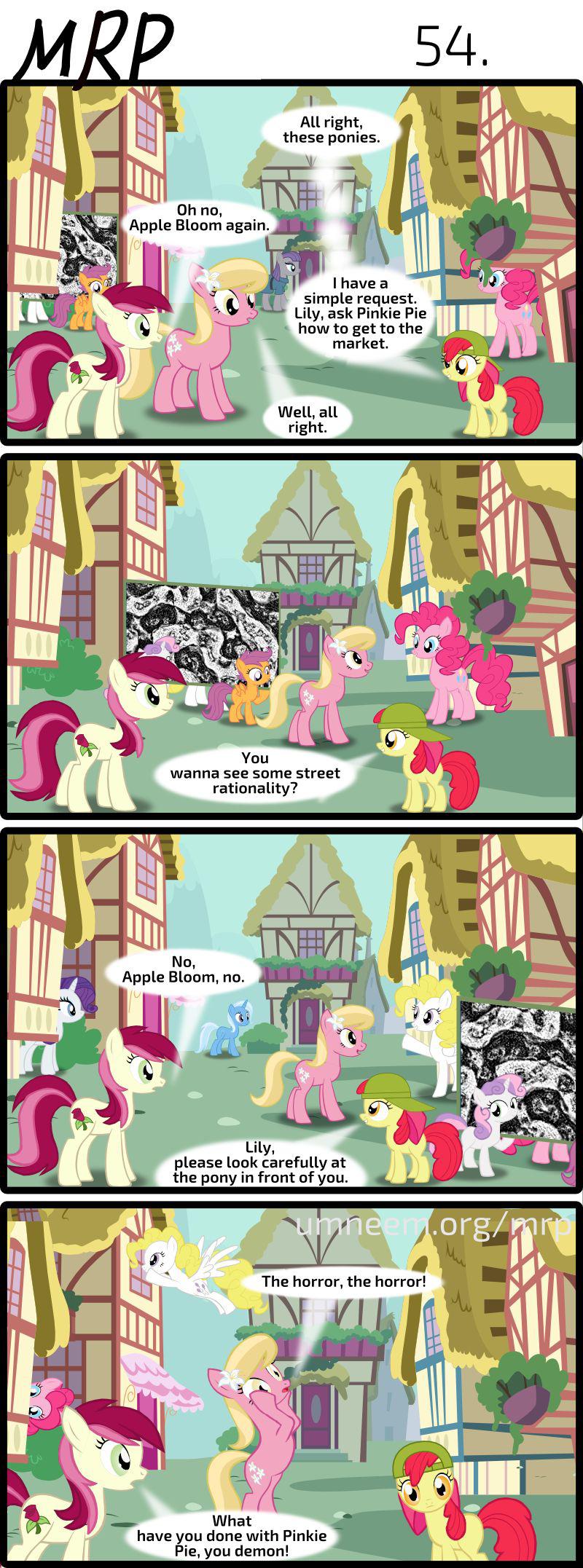
- People tend to overestimate the extent to which their beliefs are typical or common of those of others. Therefore an illusion appears that there is a consensus.
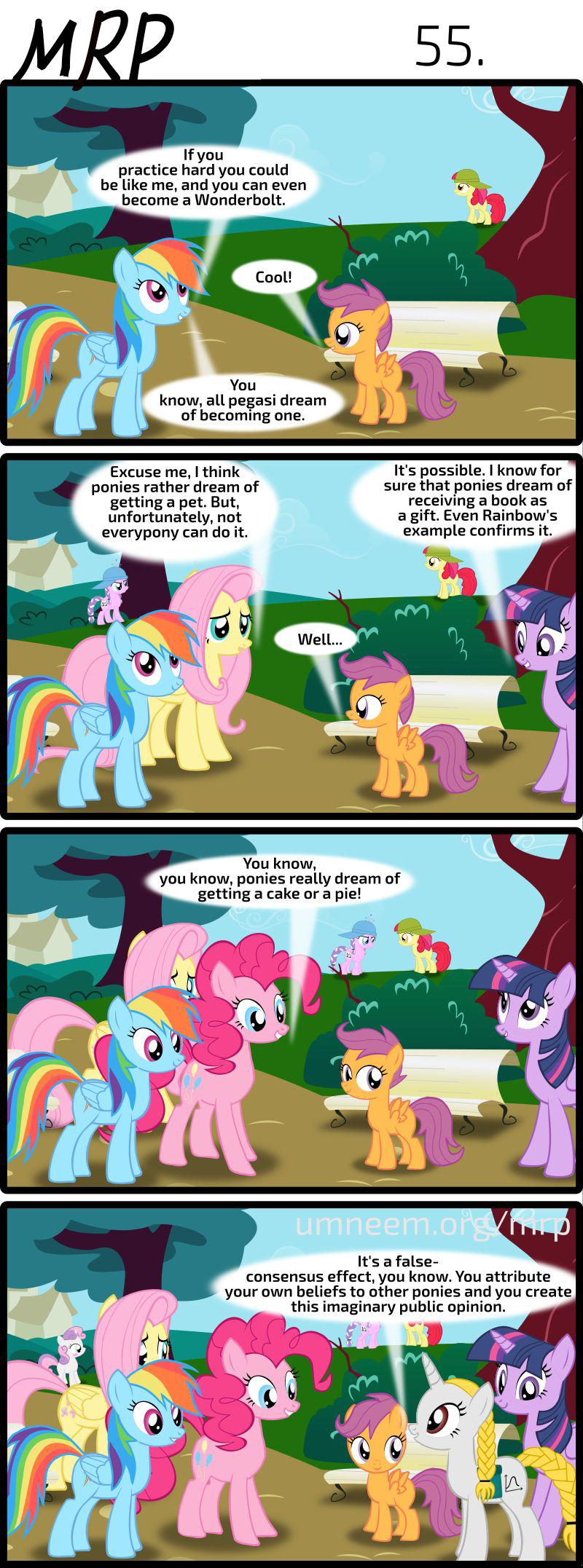
- It is a cognitive bias that occurs when a proposal is devalued if it appears to originate from an antagonist.
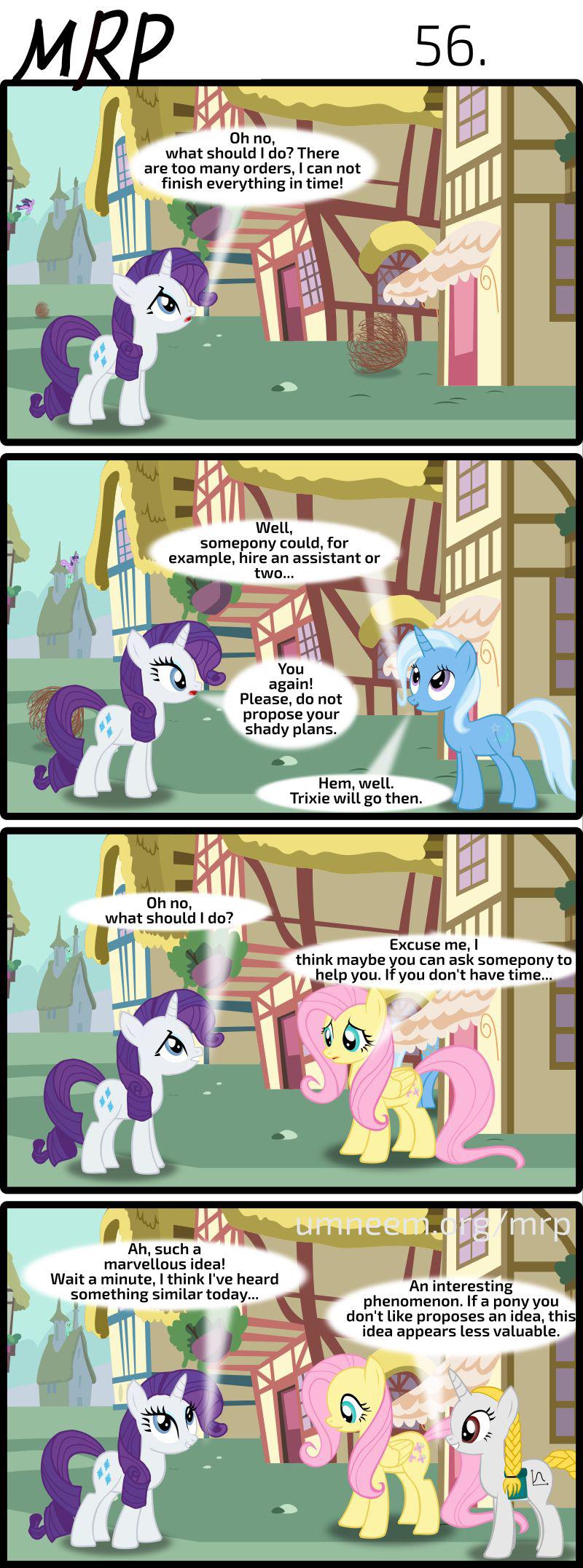
- The bandwagon effect is characterized by the probability of individual adoption of a belief increasing with respect to the proportion of people who have already done so.
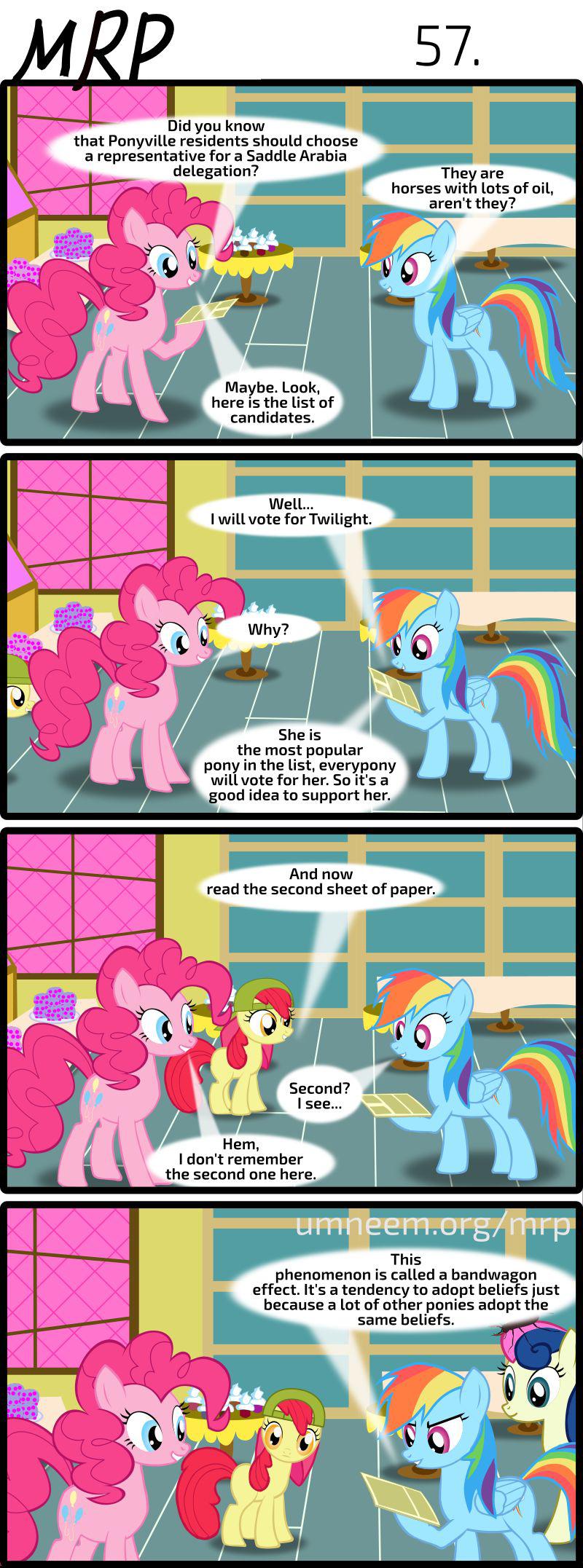
- This dilemma can be used as a model for many real world situations involving cooperative behavior. It is usually described in details in game theory and decision theory texts.
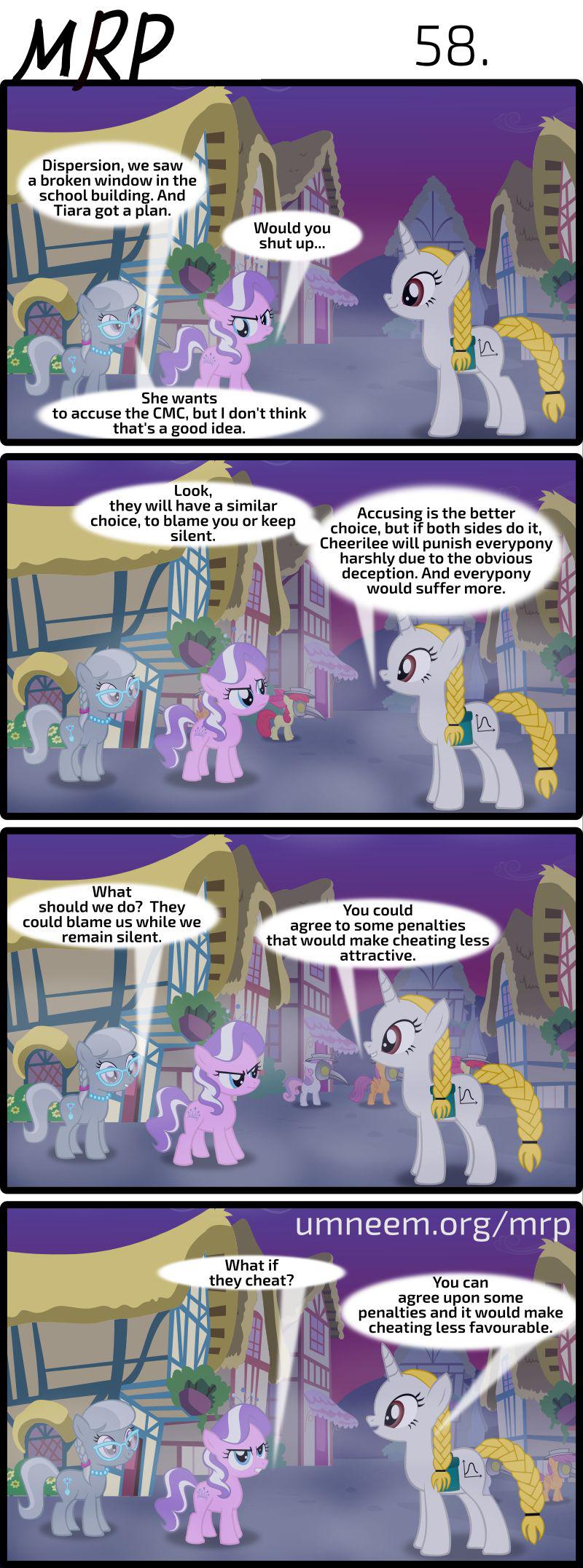
- Selective perception is the tendency to not notice and more quickly forget stimuli that causes emotional discomfort and contradicts our prior beliefs.
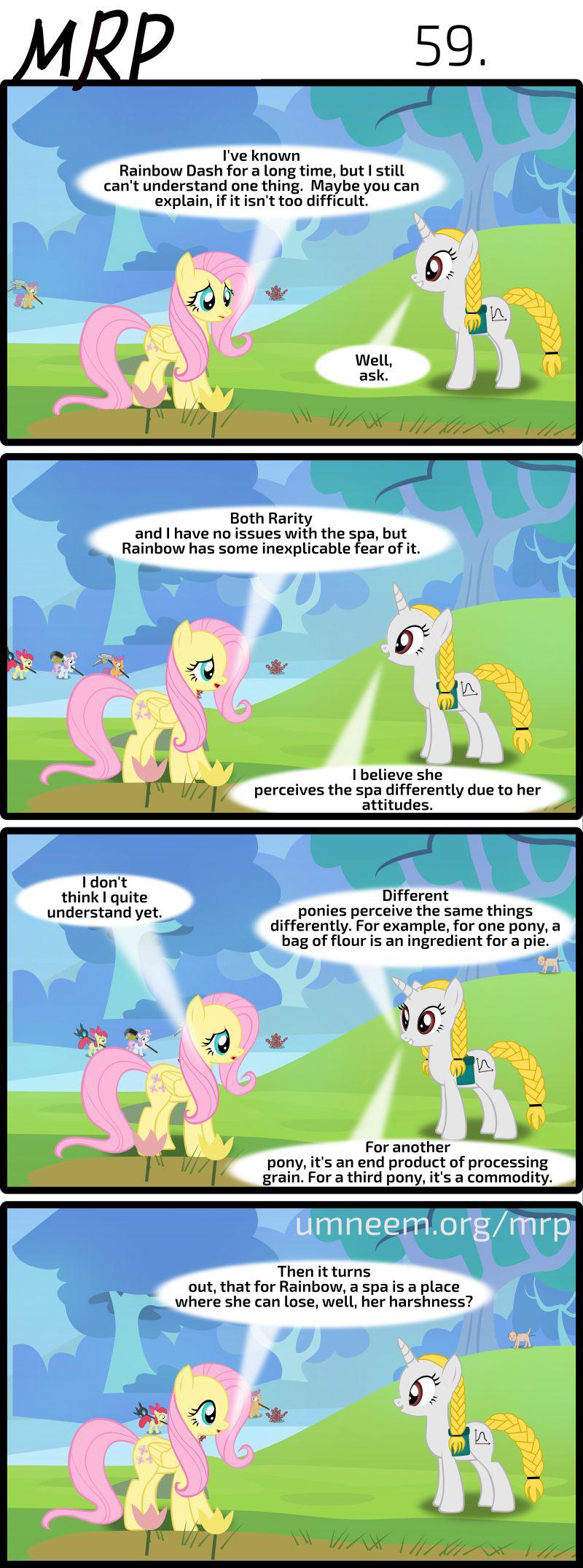
- Egocentric bias can influence perceived fairness: people feel that overpayment to themselves were more fair than overpayment to others. Also this bias is related to the false-consensus effect.
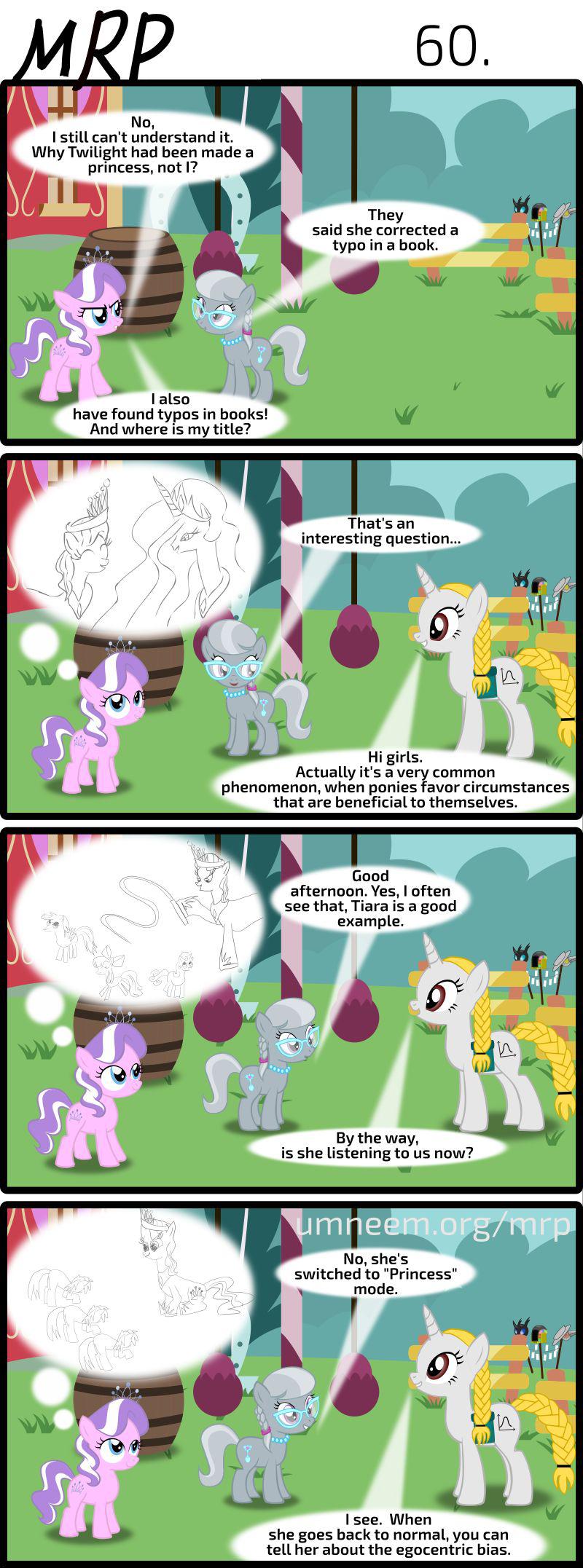



 Comics list
Comics list  Artists list
Artists list  Preferences
Preferences







 Contact
Contact  Pages 41 - 50
Pages 41 - 50










